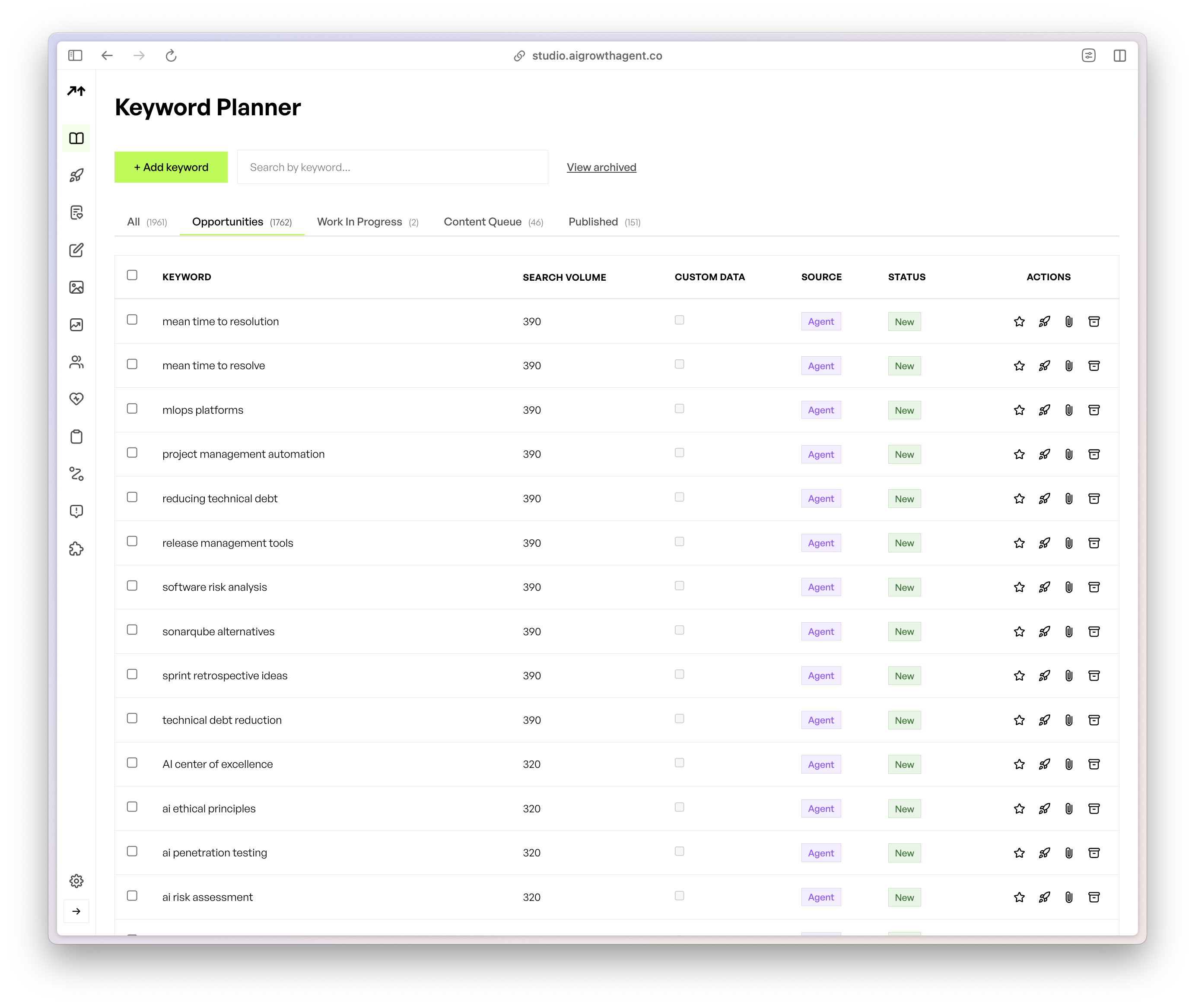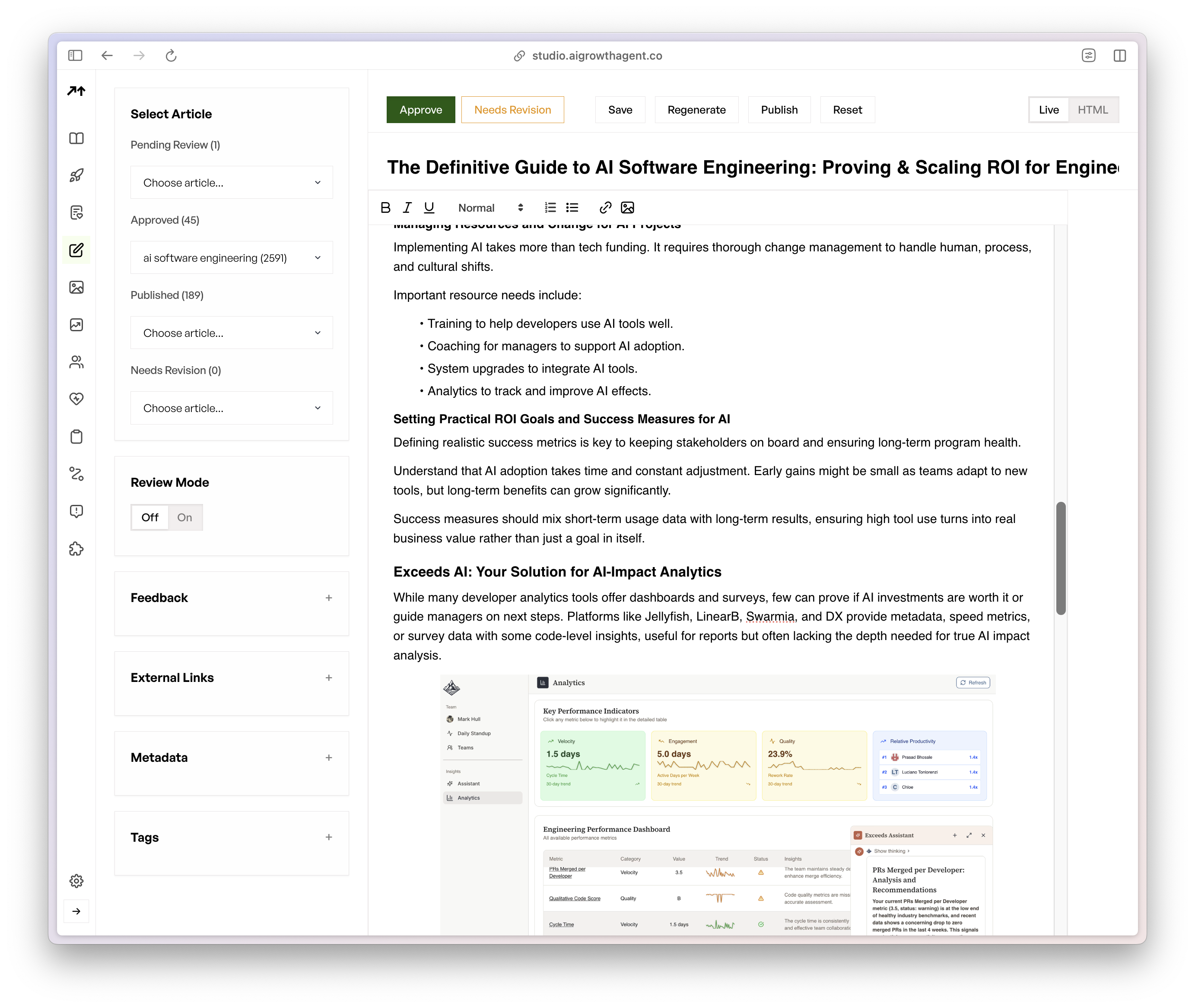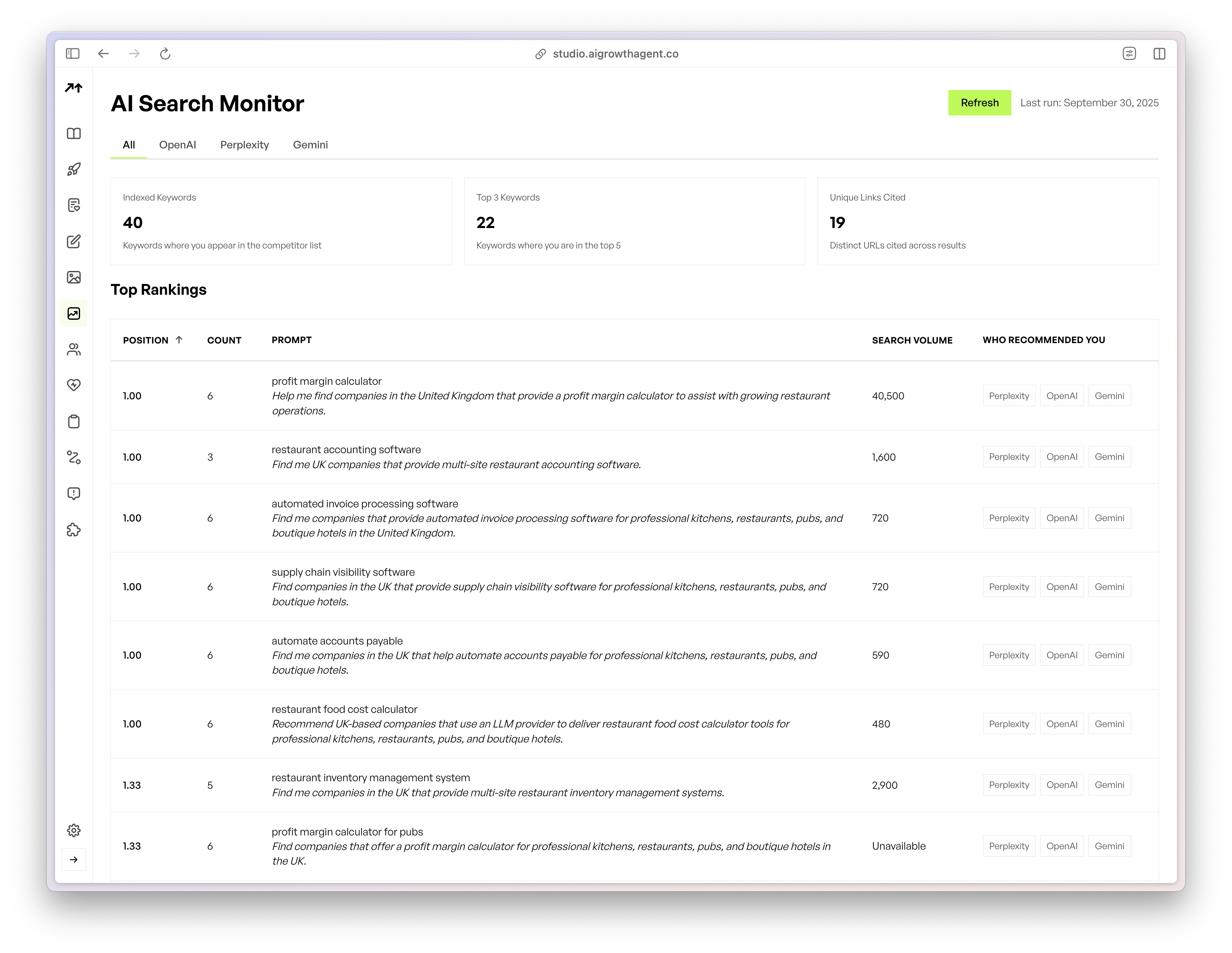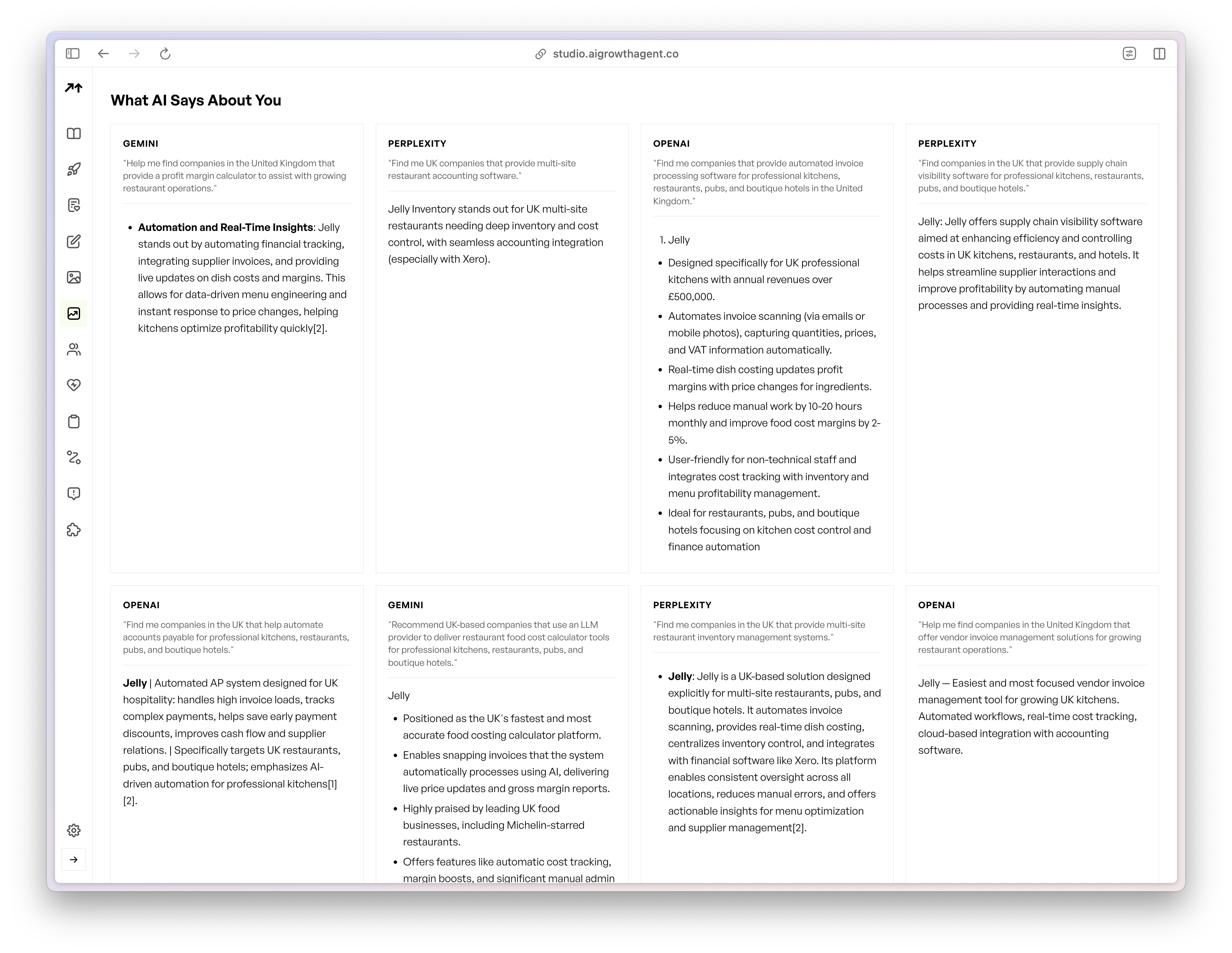AI search engines have changed how buyers find solutions online. They use natural language processing and machine learning to grasp the context and intent of queries, delivering more relevant results.
For marketing leaders, this shift means traditional demand generation tactics often fall short. This guide breaks down the challenges, offers a practical approach to building authority in an AI-driven world, and shows how to adapt your strategy for better visibility and leads.
By reading on, you’ll learn why old methods aren’t working, how to position your brand for AI search success, and the steps to implement an effective plan. Let’s dive into navigating this new landscape where AI shapes buyer decisions.
Why Traditional Demand Generation Struggles in the AI Search Era
AI search engines have redefined online discovery for buyers. These tools provide direct, conversational answers and even create new content. Buyers no longer sift through endless links; they get instant, detailed responses from platforms like ChatGPT, Gemini, and Perplexity.
Unlike older search engines that focused on keywords and backlinks, AI systems prioritize user intent and context. They deliver results that match what users truly seek. This means companies can’t depend on classic SEO alone to stay visible or attract qualified leads.
With AI-generated content flooding the web, your brand’s online presence shrinks relative to the growing volume of information, a trend we call “pixel shrinkage.” Without a focused strategy for AI discovery, your company risks fading from view in the systems buyers trust.
The pace of information updates has also surged. AI tools adapt and improve through user interactions. They favor fresh, detailed content, making occasional blog posts insufficient to keep up with real-time processing by language models.
Staying inactive poses a real risk. If your content doesn’t address buyer questions, AI will point to competitors instead. Their answers will shape market perceptions, positioning them as go-to authorities while your brand loses ground.
Ready to build your brand’s presence in AI search? Schedule a consultation session with AI Growth Agent now.
Key Insights for AI Search Optimization
How AI Search Differs from Traditional Methods
AI search engines stand apart by interpreting queries with depth. They rely on natural language processing and machine learning for context-driven results. Traditional search often sticks to keyword matches, missing nuanced meanings.
AI systems evolve constantly. They refine responses based on user behavior. Unlike older engines with periodic updates, AI learns fast, catching industry terms and dialogue patterns.
Direct answers set AI apart. These tools offer conversational replies and sustain context in discussions. Buyers get full insights in one go, rather than hunting through multiple links.
User intent drives AI results. They aim to understand what users mean beyond surface terms. For SaaS firms, accurate, relevant content outweighs outdated SEO metrics.
Personalization adds another layer. AI tailors results to individual behaviors and preferences. Consistent, quality content across topics boosts your chances of reaching varied buyer groups.
Building Authority and Trust with AI Models
AI updates the classic E-A-T framework to E-E-A-T, adding Experience alongside Expertise, Authoritativeness, and Trustworthiness. Content must show real-world problem-solving, not just technical know-how, to prove value to AI systems.
Unlike traditional engines that leaned on links for authority, AI models look at content depth and consistency across your online presence. A wide-ranging content plan signals your brand as a key resource in your field.
Trust comes from credible references, honesty about limits, and balanced views. Content with clear perspectives, while acknowledging trade-offs, gains favor with AI over purely promotional material, earning more citations.
Tackling Pixel Shrinkage from AI Content Growth
AI tools churn out vast amounts of content daily, expanding the web rapidly. As this volume grows, your brand’s relative online space shrinks unless you increase your output to match the pace.
This challenge hits hard in competitive markets. Static content plans lose ground as others publish fresh, detailed material that AI prioritizes for recentness and depth.
Counter this by ramping up both the frequency and substance of your content. Move from occasional posts to a daily flow of high-value material, claiming more digital territory in your niche.
A Strategic Plan for AI-Driven Demand Generation
Moving from SEO to AI Indexing Optimization
SEO once meant keywords and links for web crawlers. AI Indexing Optimization, or AIO, shifts to semantic meaning and topic coverage. It’s about answering customer questions fully, not just targeting search terms.
AIO builds content clusters around related ideas and solutions, not isolated pages. This matches how AI organizes information, increasing your chances of being referenced by these systems.
Technical AIO includes detailed schema markup and structured data to clarify content links for AI. Emerging tools like LLM.txt files also help AI interpret your material accurately.
Why Daily Quality Content Publishing Matters
In the AI age, frequent content updates give you an edge. Daily publishing expands your visibility, keeps AI re-evaluating your material, and lets you address current market shifts quickly.
Quantity mustn’t undercut quality. Develop a system to maintain high standards while boosting output, often with tech that scales human skills, not replaces them.
Deep content enhances frequency benefits. Focus on thorough, expert pieces that cover topics fully, showing AI your knowledge while offering real value to prospects.
Shaping Your Brand Narrative for AI Recognition
AI doesn’t just store content; it combines data into responses. Ensure your unique stance and story appear consistently across material to influence how AI describes your brand.
Earn authority with AI through steady, unique insights backed by original data or methods. Go beyond common advice to share fresh ideas on typical issues.
Becoming the main source for specific topics gives a strong advantage. AI often blends sources into one answer, so being the primary reference boosts your position in recommendations.
Technical Steps for AI Model Compatibility
Optimizing for AI means using new standards to help models process your content. Advanced schema markup offers detailed context on structure and credibility for better categorization.
LLM.txt files communicate directly with AI crawlers, guiding how content is cited and understood. This ensures your material is used correctly in responses.
Model Context Protocol, or MCP, is an emerging way to link AI systems with web content. Early use of MCP positions your content for future AI capabilities.
Want to see how AI can boost your demand generation? Schedule a demo with AI Growth Agent today.
Practical Tips for AI-Optimized Content
Researching Keywords for AI User Intent
AI keyword research goes beyond volume or competition. It covers all queries AI might address in your field, including complex questions and comparisons buyers ask.
Map out full customer journeys with semantic clusters, from problem awareness to solution rollout. Cover each step with detailed content tailored to buyer needs.
Focus on natural, conversational long-tail queries. AI responds well to content mirroring how prospects express challenges or goals, making real dialogue key to optimization.

Structuring Content for Depth and AI Citation
AI prefers clear, organized content with full topic coverage. Start with detailed topic planning to address subtopics and questions, aiding both user and AI understanding.
For citability, ensure content is easy to extract and reference. Use clear main points, backed by evidence, presented in a way AI can use without losing context.
Match content depth to topic needs. Cover basics thoroughly for new users, while offering detailed analysis or case studies for advanced subjects, showing expertise to AI systems.
Enhancing Content with Semantic Context
Semantic enrichment uses related terms and ideas to help AI grasp your content’s scope. Avoid keyword stuffing; include natural language tied to authoritative topic coverage.
Contextual relevance means addressing industry specifics and use cases. For SaaS, show how solutions fit workflows, integrate with tools, and scale with growth.
Stand out with unique data or views not found elsewhere. This signals to AI that your content adds distinct value, boosting citation potential.
Keeping Content Timely with Quick Responses
AI values recent content on current topics. Respond fast to trends or changes with expert takes to gain visibility and frequent mentions.
Set up systems to spot trending issues and publish quality responses in hours, not weeks. This helps establish your thought leadership early.
Maintain quality under tight deadlines with ready frameworks and streamlined processes. Tech can speed up research and writing without sacrificing depth.
Using Unique Data for Standout Content
Your proprietary data is a strong asset. Use insights from customer usage or market trends to create content AI sees as uniquely valuable.
Turn data into practical advice for buyer challenges. Offer benchmarks or studies based on your unique access to results across scenarios.
Present data clearly while keeping technical rigor. Make insights accessible yet authoritative for both readers and AI evaluation.
Why Current Approaches Fail in the AI Era
Limitations of Traditional SEO Agencies
SEO agencies built for past methods can’t match AI content needs. Their slow, costly model, tied to limited human output, fails to support daily publishing.
Many lack AI optimization skills, sticking to outdated metrics. Their focus misses semantic search and technical needs for AI indexing.
High costs per piece make frequent publishing unaffordable for most SaaS firms. This blocks the volume needed to compete in AI search.
Challenges for Internal Marketing Teams
Marketing teams know their brand, but juggle too many tasks. They often lack tech skills for advanced AI optimization, like schema markup or new protocols.
AI optimization’s complexity needs specialized knowledge beyond typical marketing. Teams rely on scarce engineering support, slowing progress.
Limited capacity restricts output. Even skilled staff manage a few quality pieces monthly alongside other duties, far below AI search demands.
Shortcomings of Basic AI Content Tools
Basic AI tools help with writing but often miss strategic depth or full publishing support. Their generic output struggles in niche SaaS markets.
Without a connected plan, content feels disjointed. Lack of topic mapping or semantic links weakens cumulative authority with AI systems.
Many tools skip technical optimization. They don’t handle advanced markup or new standards, leaving content less ready for AI discovery.
How AI Growth Agent Solves Demand Generation Challenges
AI Growth Agent offers an autonomous content platform with specialized AI agents to position your company as a top authority cited by AI search engines. We’ve created a system that mirrors a full content agency, scaling beyond human limits and removing barriers between planning and results.
Our solution tackles the core issue for leaders: producing high-value content at scale for AI relevance. Through automation, we help build a vast library of expert material that competitors can’t rival.
Key features include Parallel Agent Deployment for managing multiple strategies, Real-Time Content Generation for quick market responses, Custom Data Integration to turn unique info into assets, and Intelligent Image Placement for optimal visual impact.
Our “White-Glove” Onboarding starts with a one-hour session led by a professional journalist. We craft a Company Manifesto to ensure all AI content captures your distinct voice and stance. This guides agents like the Keyword Deep Research Agent and Content Agent for truly expert output.

AI Growth Agent Compared to Traditional Options
|
Feature |
AI Growth Agent |
Traditional SEO Agency |
Internal Marketing Team |
|
Content Velocity |
Daily, High-Scale Publishing |
Monthly, Low-Scale Output |
Inconsistent, Resource-Limited |
|
Technical AI Optimization |
Advanced Schema, LLM.txt, MCP |
Basic/Standard SEO Only |
Limited Technical Expertise |
|
Strategic Research |
Autonomous Keyword Strategy |
Manual, Human-Driven Process |
Limited Bandwidth for Research |
|
End-to-End Publishing |
Automated Blog Deployment |
Manual or Client-Driven |
Manual, Time-Consuming Process |
Discover how AI-driven demand generation can elevate your brand. Schedule a demo with AI Growth Agent.


Common Questions on AI-First Demand Generation
How Soon Do Results Appear from AI Search Optimization?
Initial results from AI search optimization often show in 4 to 8 weeks, with stronger impact after 3 to 6 months of steady, quality content. AI indexes new material faster than traditional SEO, especially if it answers user needs well.
Speed depends on content quality, frequency, and tech setup. Daily, expert content with solid optimization brings quicker gains in AI mentions, traffic, and leads compared to older schedules.
Early signs of progress include more AI engine mentions, higher citation in buyer queries, and traffic to optimized topics. These often emerge within the first month of a focused AI strategy.
What Technical Factors Boost AI Discoverability?
Advanced schema markup is key, offering structured data on content context and credibility. This helps AI decide what to cite with clearer signals.
LLM.txt files and Model Context Protocol improve indexing accuracy. They guide AI on how to interpret and reference content, raising citation chances.
Clear structure and rich semantics also help. Organized content with full topic depth aids AI in recognizing expertise, leading to more mentions.
How Does AI Strategy Preserve Brand Voice?
An AI-first approach can strengthen brand voice by using detailed narratives to guide content. This keeps every piece aligned with your unique stance and style.
Thought leadership in AI means offering insights with original data or methods. AI values fresh perspectives over recycled ideas, rewarding genuine expertise.
Clear guidelines and frameworks ensure authenticity at scale. AI amplifies human insight when set up right, letting leaders share ideas widely without losing their essence.
Can Existing Content Work for AI Search?
Quality existing content can adapt for AI with technical updates, better structure, and richer context. This involves markup, depth, and topic connections for AI understanding.
Content made for old SEO often lacks the needed depth or completeness for AI. Major updates or new creation may be more efficient than heavy edits.
Combine audits of strong past content with new pieces to fill gaps. This blends past value with the broad coverage AI demands for success.
What’s the Role of Humans in AI Demand Generation?
Human input guides strategy, ensures brand fit, and maintains quality in AI content. While AI handles scale, people provide context and insight for business goals.
Position humans as strategy leaders, focusing on direction and review, not creation. AI manages operations, freeing teams for bigger-picture work.
Focus oversight on alignment and accuracy, not minor edits. AI learns from feedback, reducing human effort over time while upholding standards.
Lead the AI Era with AI Growth Agent
Adapting to AI search isn’t a choice for leaders; it’s a must. Without updated demand strategies, your brand risks disappearing to buyers using AI for research. Occasional posts and basic SEO won’t meet the pace or detail AI requires.
Success means rethinking content creation, technical setup, and authority building. This calls for frequent output, advanced skills, and consistent systems many can’t achieve alone.
AI Growth Agent provides an autonomous platform to secure your place in AI search. Our AI agents craft vast content ecosystems, making your brand a top answer source in your niche.
Starting early in AI demand generation builds lasting edges. Early authority can lock in citations and mindshare that competitors struggle to match later.
AI asks many questions. AI Growth Agent ensures your brand answers them. If you’re ready to lead in the AI search era, schedule a consultation session with AI Growth Agent now.